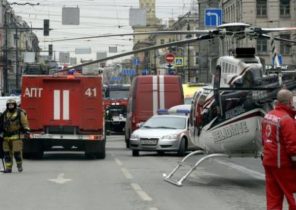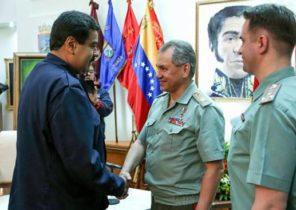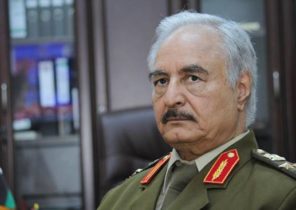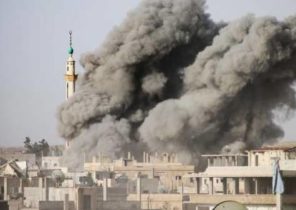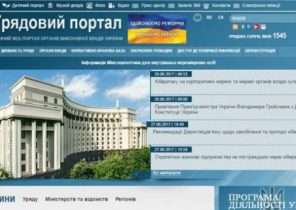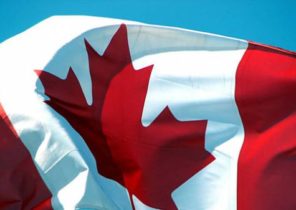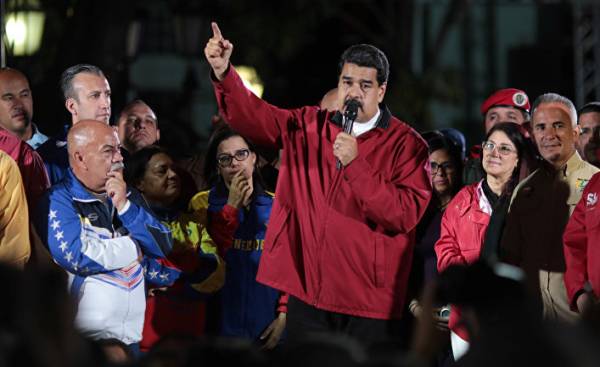
The United States announced a new package of sanctions against Venezuela. Already weakened economy will suffer significant damage without even entering the oil embargo, which can lead to catastrophic consequences for the population and brings into the situation a new factor — risk to push a desperate Nicolas Maduro into the arms of Vladimir Putin.
Theoretically, the US sanctions, supported by other Latin American countries and protest actions of the population, seeks to force Maduro to respect the integrity of the National Assembly and call General elections. However, to date, in addition to the anxiety caused to some revolutionary leaders (which is welcomed), the sanctions have not really contributed to the restoration of democracy in Venezuela.
Every criticism of the world community, the government responds with more violence and repression, arrests of political leaders, demonstrators and journalists. Human rights violations have only increased. Unfortunately, the international sanctions do not bring effect, not only in Venezuela. Recently fellow, Institute for international Economics. Peterson Gary Hufbauer (Gary Hufbauer) analyzed more than 200 cases of application of international sanctions over the past 100 years and came to the conclusion that, by imposing sanctions, it is better to guide modest aspirations.
But modesty is not the style of trump. In this case, should we expect to see him more efficient and potentially more destructive measures? Possible. And since aim is a tyrant, ready rather to sacrifice his own people than renounce power, it is possible to anticipate growth in the number of deaths among innocent civilians. Many believe that this is the price we must pay in order to put the regime on its knees, and that sooner or later Maduro will be forced to concede. But they do not know him. The successor Chavez draws inspiration from the examples of North Korea, Syria, Iran, Russia and of course Cuba. All of these countries have experienced a variety of sanctions, redeemed their devastating force and left as they were. When the sanctions were imposed against the criminal governments, thus was able to weaken them, but in any case not to overthrow. In addition, sanctions have a deterrent effect only when backed by the will to conduct hostilities, and that now is simply not happening. Though official Venezuelan propaganda and blames the southern command of the U.S. army intent to destroy the revolution, the US and some neighboring countries at best are ready to take the crowd of Venezuelan refugees.
And here the Russian factor plays a key role. Maduro caused a storm when he wanted to abolish the National Assembly first, using the Supreme court, and then through the Constituent Assembly. His original motive was a desire to remove obstacles for getting Russian money in exchange for oil wells.
Venezuelan company Citgo, which owns significant energy assets in the United States, has transferred “Rosneft” of 49.9% of its shares as collateral on loans in the amount of two billion dollars and government guarantees to issue debt. As soon as the pressure builds, Venezuela loses the possibility of payment. Russia wants to obtain control over Citgo and instead wants to gain control over Venezuelan oil fields, that without the approval of the National Assembly is illegal.
And this happens precisely when the Kremlin is reconsidering its ties with Latin America. The United States shut down the process of normalization of relations with Cuba, leaving raúl Castro no choice but to re-establish relations with their former masters. Because of the potential unpredictable development of the situation in Venezuela, Putin will try to act as the guarantor of maintaining order. Taking into account the interests of Moscow, the preservation of Maduro as President will suddenly become for Russia a national emergency.
Representatives of the Russian defense Ministry announced plans to resume its presence in Cuba, which may be interpreted as an aggressive gesture. Russia needed a reason that would justify the frequent moving ships and submarines in the Caribbean sea between Cuba, Nicaragua and Venezuela. If Russia suddenly becomes the owner of oil wells in Venezuela, she will try to keep the Maduro regime and the United States will have to confront Russia is not in Eastern Europe and the middle East, and in their own backyard.
